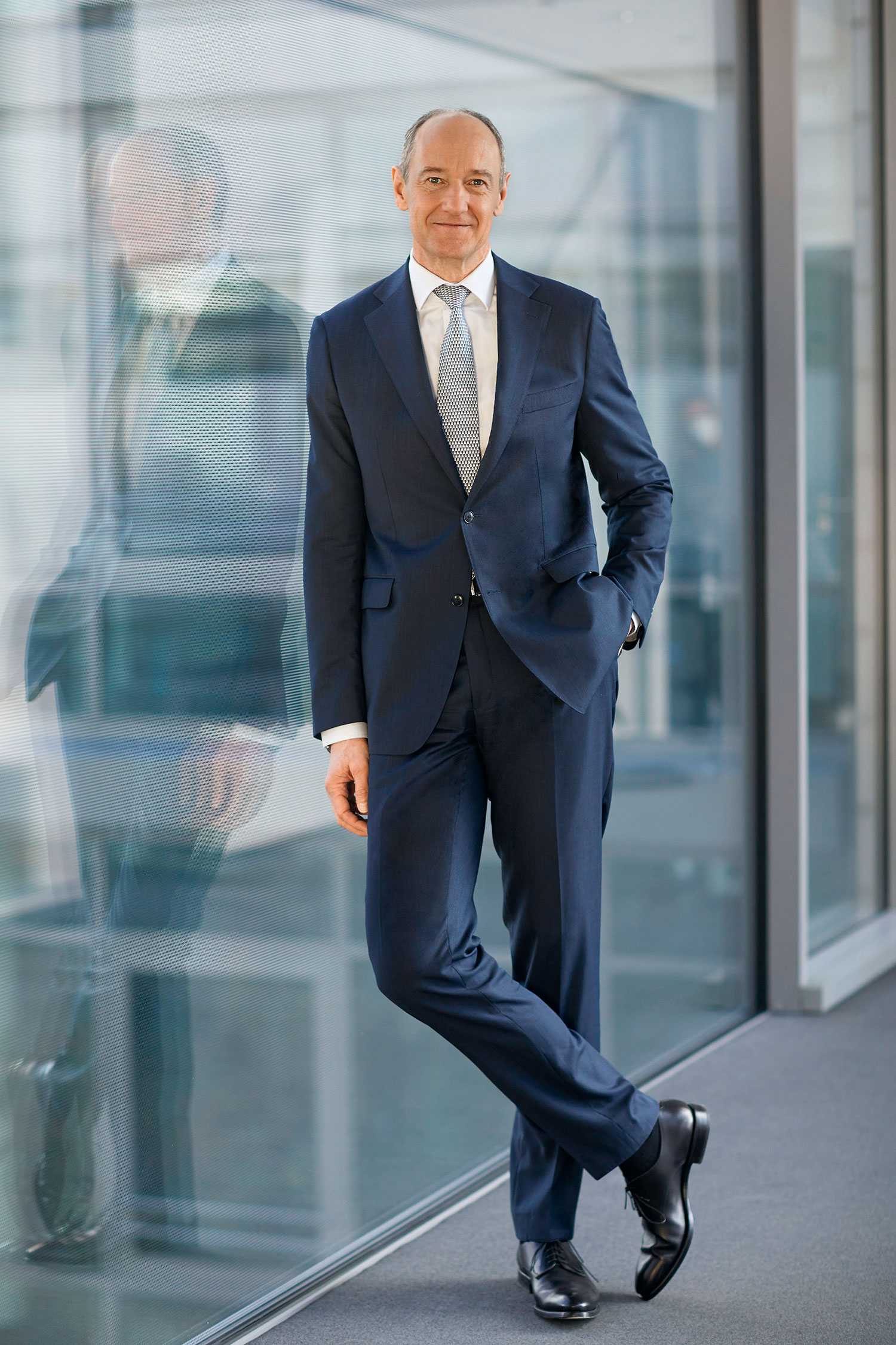Dr. Roland Busch, president and chief executive officer of Siemens AG
Fraunhofer magazine 1.2024
AI will unlock greater productivity, enabling more innovation and sustainability. It is the big opportunity of our time. To harness it, Germany needs a wise immigration policy – and a culture of openness.
I introduced Danny at this year’s Siemens general meeting. Although Danny is artificial, it acts extremely intelligent. I can talk to the AI like I would to a person, and it can answer me the same way. Danny is still in training, but the AI will soon have in-depth knowledge of industrial technologies. And when it comes to programming robots, Danny has skills equivalent to those of our top experts. It is living proof – or perhaps I should say human-created proof – of how generative AI will change the world.
AI unlocks greater work productivity and accelerates innovation, and it can also support us with sustainability. It helps address the shortage of skilled workers. And it is a huge factor we can harness for sustainable economic growth and competitiveness by revolutionizing entire industries and reinvigorating national economies. It is the big opportunity of our time. And Germany can be the nucleus for generative AI in industry – industrial AI. How will we do that?
Three answers.
First: Germany is home to many world-class ecosystems, such as automotive, chemicals, pharma, manufacturing, and universally relevant, machine building – all with strong ties to the scientific community. Successful ecosystems require one thing above all: creative, engaged people. And that also includes people who come to Germany and want to contribute their skills, so we need a wise immigration policy, paired with a culture of inclusion and openness. In Friedrich-Alexander-Universität Erlangen-Nürnberg and the Fraunhofer Institute for Cognitive Systems IKS, we have a strong ecosystem for accelerating the digital transformation of train systems. Together, we are using AI to develop driverless trains (see pp. 56/57). We use AI for companies such as Heineken and Northvolt, conserving energy during the beer brewing process and optimizing production at battery gigafactories.
And where some people see competitors, we see partners. We work with NVIDIA to create photorealistic visualizations for the industrial metaverse. Together with Amazon Web Services, we make it easier to incorporate AI into apps. And we’ve joined forces with Microsoft to develop the Siemens Industrial Copilot, which makes human-machine interactions faster and more intuitive than ever before. This industrial copilot is what we named Danny. Schaeffler is the first customer to use it in the real world.
Second: At Siemens, we have years of expertise in using AI for our customers. And since the release of ChatGPT, we’ve touched off a wave of ideas and projects in our research and development department – including Danny. Our entire experience tells us that humans will not be replaced by AI. Humans will be replaced by other humans who use AI. That’s why continuing education is so important. We already have about 1,500 proven AI experts at Siemens today. And 40,000 of our colleagues attended AI training in 2023.
Third: The EU’s planned AI regulation definitely has good intentions, but it might impede AI-based business models. There are similar risks with the EU data regulation and taxonomy regulation. None of these regulations are wrong in principle, but taken as a whole, and especially in the fine print, they may jeopardize innovation at a time when innovation is more important than ever. They are slowing things down at a time when speed is crucial to our competitiveness.
But I am a firm believer in our country’s innovative strength. That’s one of the reasons Siemens is investing a billion euros in Germany’s future, in spite of slow growth and an increasing trend toward investing in other countries.
We are using the funds to create a high-tech campus in Erlangen as a blueprint for the industrial metaverse. We’re combining the real and digital worlds to create an immersive space – a virtual world almost indistinguishable from the real one. AI engineers and their human colleagues can work together in real time there to solve the biggest challenges of our time.
I see AI as a factor we can harness for growth. It also offers us chances to do good. If we promote open ecosystems and a positive basic attitude and find a reasonable approach to regulation, we can harness AI to make great strides.
